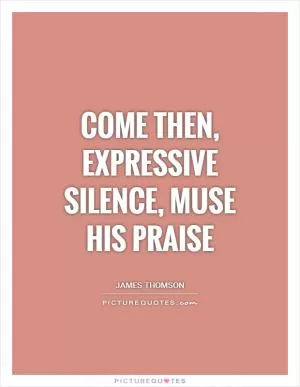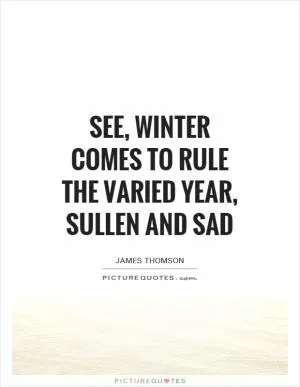More firm and sure the hand of courage strikes, when it obeys the watchful eye of caution

More firm and sure the hand of courage strikes, when it obeys the watchful eye of caution
James Thomson, a Scottish poet known for his reflective and nature-inspired works, often explored themes of courage, caution, and the delicate balance between the two. In his poem "The Seasons," Thomson delves into the idea that true courage is not reckless or impulsive, but rather a calculated and thoughtful response to challenges and obstacles.The line "More firm and sure the hand of courage strikes, when it obeys the watchful eye of caution" encapsulates Thomson's belief that courage is most effective when tempered by caution and prudence. In other words, acting boldly and decisively is important, but doing so without careful consideration of the risks and consequences can lead to disaster.
Thomson's use of the metaphor of the "watchful eye of caution" suggests that caution is not a hindrance to courage, but rather a guiding force that helps to channel and direct it in a productive and purposeful way. Just as a watchful eye keeps a vigilant lookout for danger and potential pitfalls, caution serves as a protective barrier that prevents rash and impulsive actions.
The idea that courage is more effective when guided by caution is a timeless and universal concept that resonates with readers of all ages and backgrounds. In a world that often glorifies boldness and daring, Thomson's perspective serves as a reminder that true courage is not about taking unnecessary risks or seeking out danger for its own sake, but rather about facing challenges with a clear and level-headed approach.
Ultimately, Thomson's exploration of the relationship between courage and caution in "The Seasons" serves as a powerful reminder of the importance of balance and moderation in all aspects of life. By heeding the watchful eye of caution, we can ensure that our actions are not only bold and courageous, but also thoughtful and wise.












 Friendship Quotes
Friendship Quotes Love Quotes
Love Quotes Life Quotes
Life Quotes Funny Quotes
Funny Quotes Motivational Quotes
Motivational Quotes Inspirational Quotes
Inspirational Quotes